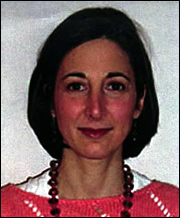
University of Notre Dame anthropologist Karen Richman examines the nature and centrality of religion for Haitian migrants to South Florida in a new book titled “Migration and Vodou,” published by University Press of Florida as part of the New World Diasporas series.
Discrediting myths of exotic and primitive vodou long used against Haitians, “Migration and Vodou,” which is accompanied by a compact disc, provides a rare excursion into the innovative ways a community of Haitian migrants to South Florida has maintained religious traditions and familial connections, including recording sacred songs and circulating them among communities.
The first ethnography of the religion, ritual, and aesthetic practices of a single, transnational Haitian society, the text and compact disc were produced in collaboration to give the reader intimate access to Haitians’ ingenious uses of cassette tapes to extend the boundaries of their rhetorical and ritual spaces.
“The people at the center of this book and compact disc are a transnational community,” Richman said. “Ti Rivye (Little River), a coastal hamlet in Logane, Haiti, is their moral and material anchor, and although Ti Rivye spans Haiti, the Caribbean, North America and France, its major outpost is Palm Beach County, Fla. This study explores both how migration has affected the religion and ritual practice of this mobile, long-distance community, and how religion and ritual influence the experience of migration.”
Richman, assistant professor of anthropology and a faculty fellow in Notre Dame’s Kellogg Institute for International Studies and Institute for Latino Studies, specializes in Haitian society, language, religion, migration and politics.
Contact: Karen Richman, 574-631-7269, richman.2@nd.edu
Originally published by at newsinfo.nd.edu on August 26, 2005.